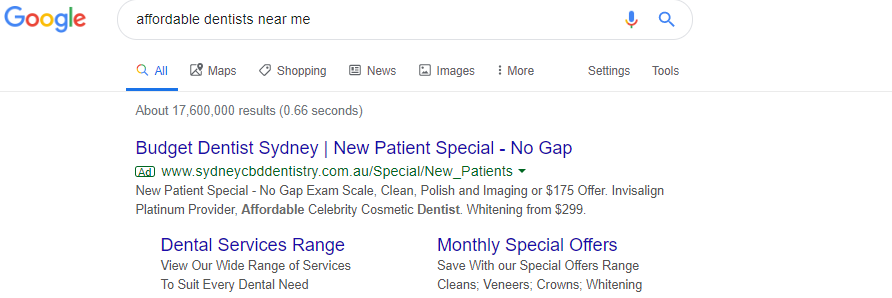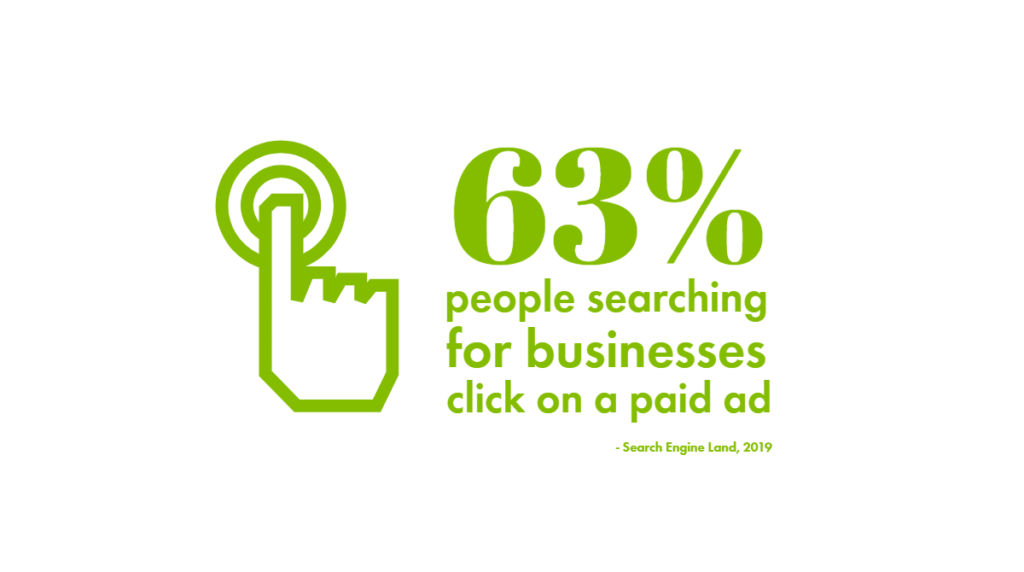
Do you find yourself asking what is Pay-Per-Click (PPC) and how is it different from other digital marketing models? Don’t worry, you’re not alone. PPC ads are a popular form of Digital Marketing, with approximately 45% of businesses investing in PPC advertising. In this blog, we are going to introduce you to PPC and help answer your common questions.
What is PPC?
PPC is an online advertising pricing model in which the advertiser pays each time a user clicks on one of their online ads. The objective is to drive the person to the advertiser’s website through a click, where that user can purchase a service or product.
Over the years, search engines such as Google and Bing have become popular advertising platforms, where a Paid Search Ad appears on search engine results page (SERP). The SERP is the listing of results on search engines which appear after putting your query in the search bar. Along with organic results to your query, you also come across paid ads on the SERP. This provides an opportunity for advertisers to place their brand, service or product in the form of an ad that targets a specific keyword or behaviour.
How Does it Work?
With every ad on search engines, an auction takes place and the algorithm of the search engine platform determines the relevance and validity of advertisements which appear on their SERP. The quality of an ad, keywords and bid amount are the contributing factors for the ad to appear on the top spot of the SERP.
How do Keywords Work?
Keywords are the foundation for a PPC ad campaign. You need to have a solid understanding of what keywords are and how to use them successfully in order to create a successful search ad campaign. In PPC ads, ad auction is a bidding system where advertisers look to bid on keywords that trigger their ads on SERP. Search engines run an auction between you and other advertisers who are bidding on those keywords, and the highest bidder wins. For e.g. you are a local dentist looking to promote an affordable dental service, then you should target keywords that people are searching, such as ‘budget dentist’ or ‘affordable local dentists’.
Below is an example of a Search Marketing campaign:

Besides keywords, search engines also look at the quality score of an ad. Search engines have a complex algorithm that determines your ad quality score, which has a direct correlation on your success with search ads. The score is based on:
- Expected click-through rate
- Ad extensions with a compelling text ad
- Landing page relevance
- Relevance of each keyword
What are the Benefits?
Research says, 63% of people searching for businesses click on a paid ad. But that’s not the only factor to consider. PPC ads are measurable, which means you can see how well your campaigns are performing including impressions, clicks, conversions and the traffic. With search ads, every keyword and spend can be tracked, allowing for a more accurate ROI. This also means it’s a lot easier for an advertiser to test their campaigns too.

Another benefit is – PPC ads are easily customisable. As you run your campaigns, you can make small adjustments based on what works best for you. And most importantly, your ads work on all platforms, including mobile and desktop devices. These are just some of the few benefits out of many.
Whatever PPC campaign may be best for your business, they can all be tailored to meet your business objectives and to target your ideal market. If you’d like some help with getting a PPC campaign set up, get in touch below!

nice article
Good informative article about “Basics of Pay-Per-Click (PPC) Advertising”, thanks for sharing.
Thanks for sharing such an informative blog.
I will definitely be sharing this post with my friends and followers. Keep up the great work!
Pay Per Click is the most important and difficult part of advertisement as if not implemented properly it can give poor search results. Thank you for sharing such an informative article describing the working and benefits of this model.
Great information regarding PPC model.
Grateful for demystifying PPC! Valuable insights on keywords, ad auctions, and tracking ROI. A powerful guide for digital success.